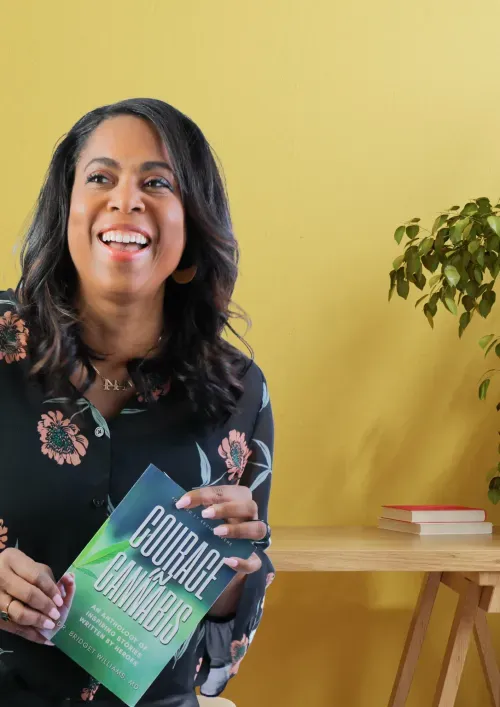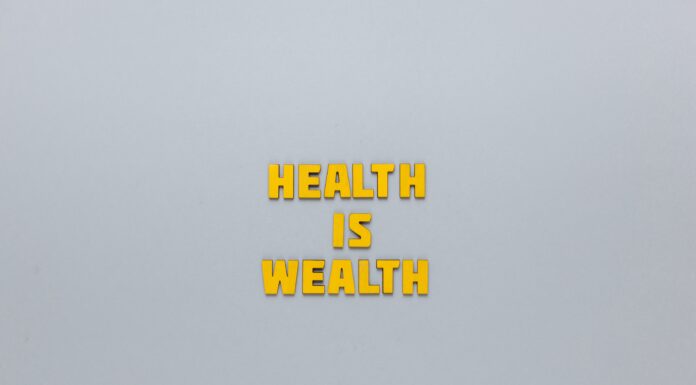( ENSPIRE Business ) How Dr. Bridget Cole Williams is Revolutionizing Medical Cannabis
ENSPIRE Contributor: Daniel Garritson
Dr. Bridget Cole Williams, MD., is a board-certified family physician, author, and CEO of Green Harvest Health in Ohio. “Courage in Cannabis” is a book by Dr. Cole Williams’ Green Harvest Health Community Foundation which features a compilation of narratives shared by a diverse group of individuals, including doctors, lawyers, patients, caregivers, entrepreneurs, and activists. The anthology showcases exceptional stories that aspire to inspire readers. Those who have chosen to explore cannabis or established ventures in the cannabis realm undoubtedly possess a story of courage that is worth sharing.
Dr. Bridget Williams is renowned for her expertise in the field of integrative medicine. Having spent almost two decades offering exceptional family medical care at The Cleveland Clinic, Dr. Williams now incorporates this experience, her life, and cannabis coaching certifications to provide her patients with the best possible care. At Green Harvest Health, Dr. Williams staunchly recommends the use of CBD in wellness routines, and her medical cannabis clinic is a testimony to the effectiveness of its usage. With its sister organization EMBODY, Green Harvest Health offers a wide range of impressive products that include pleasantly scented body oils and facial serums, among others.
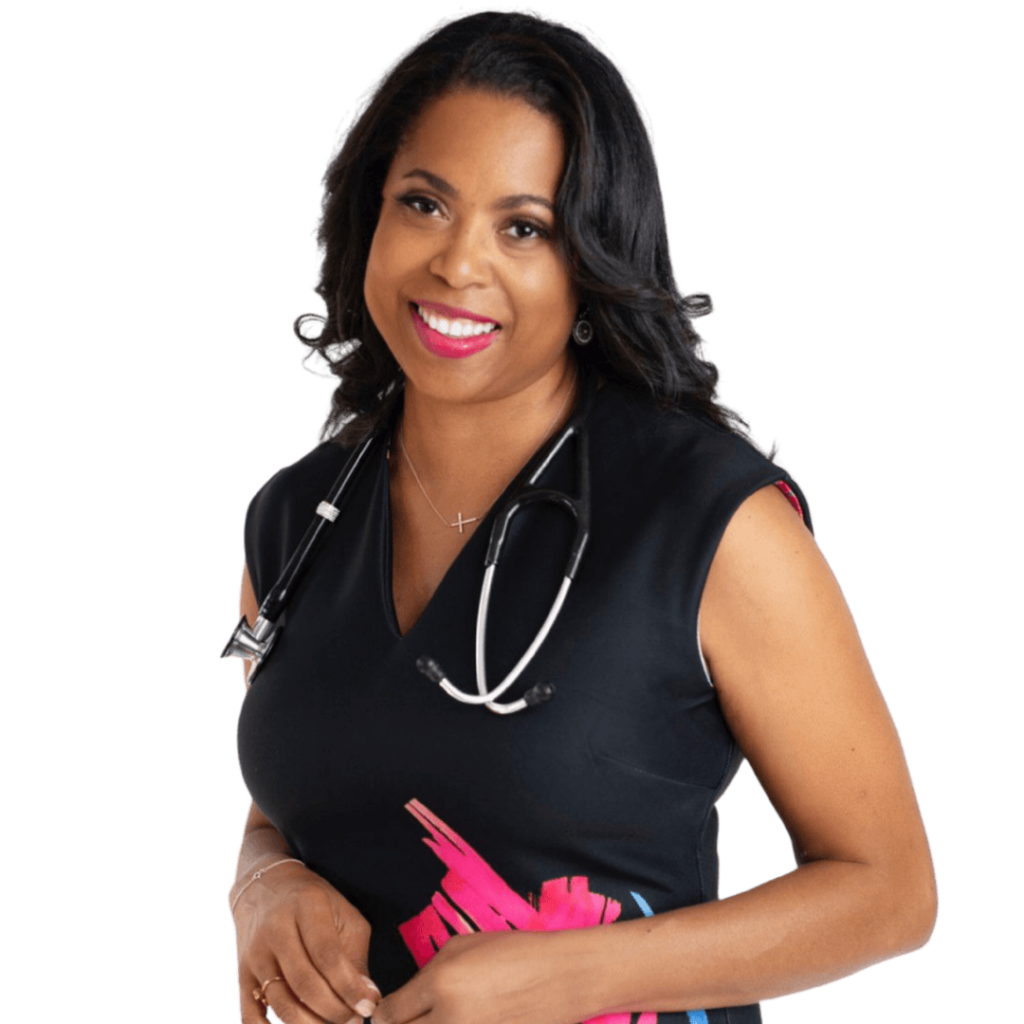
At ENSPIRE, we spoke with Dr. Bridget about the future of cannabis use in medicine.
Why did you choose to become a doctor as your career path?
When I was growing up, my father had colon cancer, and I was in and out of hospital waiting rooms. The medical team would walk in, and there I’m sitting with my older brother, my mom, and my father in the hospital bed, and they would never acknowledge us. And my father was a really unique and inspiring person, and a giant to me. And they didn’t acknowledge him. They would talk about themselves and then walk out. I was astonished.
I would say to my mom, I could do that so much better, and over time she said “You should”. And that’s what led me into medicine. I couldn’t believe they didn’t see this family here that were concerned, and they didn’t have the decency to acknowledge us. And I’ve made it a goal to be that advocate for my patients.
Green Harvest Health offers wellness coaching as a service. What are your strategies for educating individuals about their health?
My number one strategy is to listen. Number one. And to be honest, everything after that falls in line. If I don’t understand you, where you’re coming from, what your obstacles have been for your health, and what has molded your viewpoint, I can’t have any impact. Particularly if we need to do something different than what you’re used to.
When I started my career, it wasn’t long before I realized that I needed to do something different. I had patients that were complaining and didn’t want to take so many pills. I started taking patients during my lunch hour and after my shift, to remove the constraint of 15-minute appointments. By spending time with my patients, I got a better understanding of them.
If you want to do real-life change, it can’t come quickly. So the strategy for wellness as a professional is listening. Sometimes I’m going to hear things that I don’t agree with, but it’s not about me. Sometimes patients ask for a second opinion, but that never bothers me, because it isn’t about me. My job is to listen to them and to help based on what I hear.
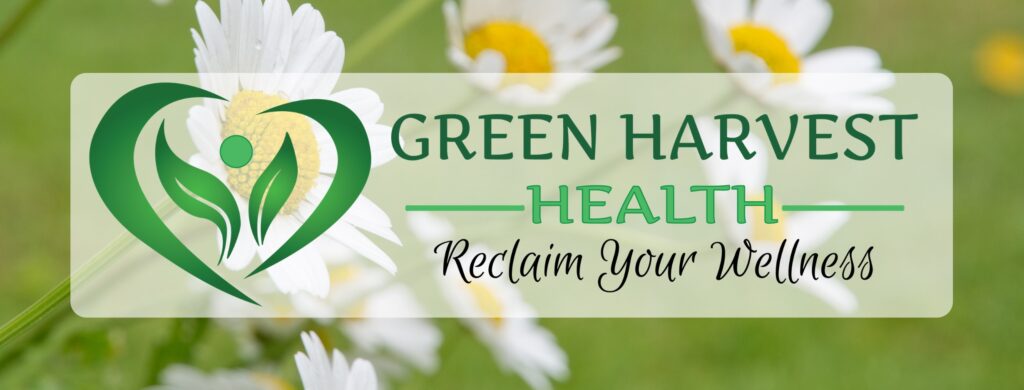
What inspired you to start the Cannabis Can! community organization?
Cannabis Can is actually a project that led to the current Green Harvest Health Community Foundation. It was created out of gratitude from a year in the cannabis space. I had two offices and had started a CBD brand and I was very grateful. It was around the holidays and I thought to myself, “Why not do a food drive”? I am very touched by how the stigma around cannabis has affected people, and in my place of gratitude I wanted to do something unexpected, and that was a food drive.
I was teaching as well at the time, and I said “Why don’t we put some boxes and bins out and try to gather enough food to help somebody during the holidays?” A colleague of mine said, “Why think so small?” I was able to add a partner to the project, and we started placing bins for donations all over Ohio, with 25 bins in dispensaries and wellness centers around the state. In the end, a half-ton of food was donated.
From there we continued to do more community service activities that people wouldn’t expect from a cannabis organization. Community clean-ups, food drives, all of the above. This also built bonds and networking between people in the industry and patients. In 2021 Cannabis Can went on hiatus so other projects could be focused on by the GHH Community Foundation.
What sort of other projects has the GHH Community Foundation worked on?
The GHH Community Foundation is about support. One of the projects that we’re working on right now is words4light.org, a project that goes out and works with other non-profits that need kindness and support as their currency. People will write letters to all sorts of different people for all sorts of different reasons, and those letters are distributed to people who need those letters.
Women’s shelters, breast cancer groups, people with disabilities, sometimes just random letters and the group goes out to the mall and just hands out letters to people. They do look for donations to support the cause, but it was really built out of the idea of providing kindness and support to people.
Project #2 is my Courage in Cannabis book series that is now under the non-profit. The first book was published in December of 2021, and the second was just sent to the publisher recently. These books are about people from every walk of life whose lives have been changed positively by cannabis, with the goal of battling that stigma. The book was read by and given to legislators, church groups, and moms, to spread the stories of these people. Not just patients, but entrepreneurs as well. There are multiple authors in the book, so we can have a variety of experiences to show off.
It was important for the book to be under the nonprofit because it’s expensive to produce a book and market it. This new book has 39 authors, and I did not want someone’s story not heard because they couldn’t afford to support the project. Now we can have stories contributed by others who might not have been heard from if we had to focus on profits. So it was really important to move underneath my non-profit, and now we have sponsors to help offset the cost, like SupHerbs Herbal Center and others.
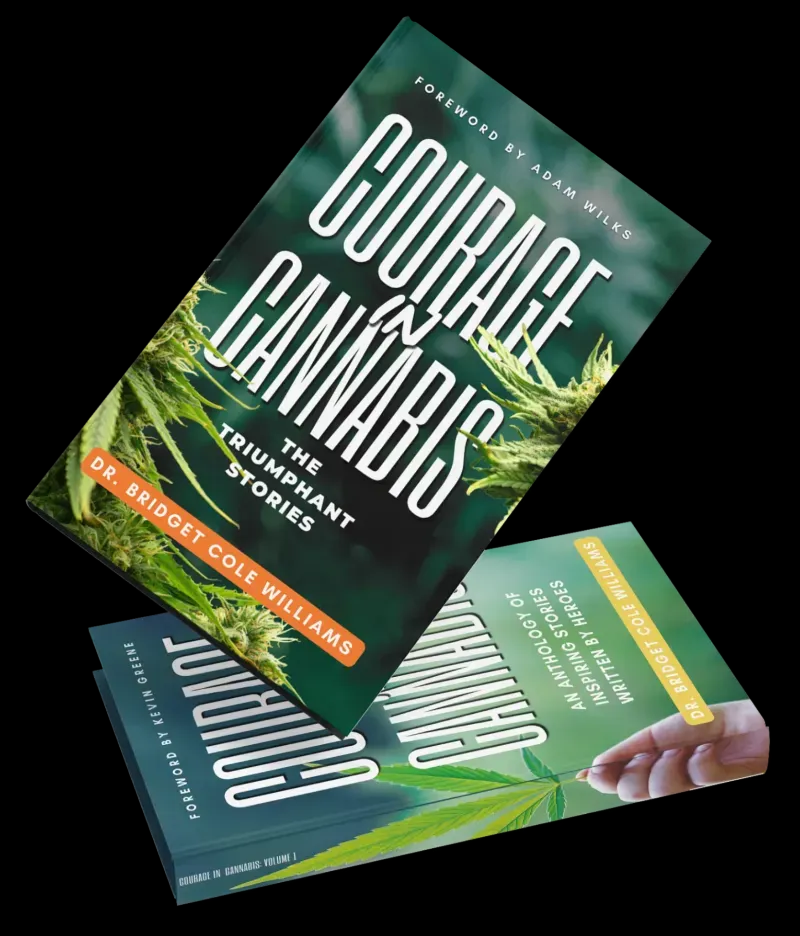
You’re an administrator and have been a teaching faculty member at the Cleveland School of Cannabis. What sort of lessons have you taught there?
Right now I am a member of the advisory board and have taken on more of a guidance role there. I’m really proud of the work they’ve done, as the school is now the only state-accredited cannabis school in the country. They worked so hard to get that accreditation, it was important for them to provide quality education to people, and I’m very proud of them.
As far as the type of classes that they offer, I think there’s a misunderstanding that there’s nothing to learn. A lot of the education is around people who want to go into the industry, extraction, distribution, and growth. I can’t grow a tomato. There is a science, and it is an incredibly impactful medicinal plant at the end of the day. We are only just beginning to understand it, and there’s so much to learn and even just keep up with.
They teach courses on the business side as well, but I was more teaching the medical aspect. Everything that touched the patient and was significant to the patient is what I taught. How does cannabis work, adverse reactions to other medications, and how to treat patients? The philosophy of how you approach patients and what they should use. Understanding the products and the flowers that are out there so that you have a better understanding of what makes it effective and what may make it less effective.
Do you feel like the stigma against medical cannabis use has waned in recent years?
Compared to the 1940s, we have come a long way, but reefer madness is alive and well. I say this because it is such an impactful medicinal plant, and it has this unusual ability to also be in a recreational market and cause harm. It becomes confusing for people, and so we have a long way to go. We aren’t using this plant to its full medicinal capabilities. There is growth and pharmaceutical companies are more than aware of the impact of cannabis. They’re creating cannabis products as we speak. However, until people have access to real medication, and people who prefer this as an option over alcohol for recreational use, we’re still stuck.
We have an incredibly tangled history with a plant of all things, and to allow politics and propaganda and money to stand in the way of wellness and, really, freedom, that’s unfortunate, so we still have a long way to go. And when we say freedom, not just freedom to choose, but all the people who are still incarcerated.
Sometimes you have kids who were doing the wrong thing, but sometimes you have people trying to feed their families. People who never had the chance to learn real entrepreneurship are trying to make something of themselves. I feel like I have a responsibility to shine a light on legacy stories because people are making millions right now off of the same thing that put millions in jail. And when these people get out, there’s no place for them in this market. You have to honor what allowed you the opportunity.
I did 20 years at the Cleveland Clinic. I paid my dues, and so to see some errors in the healthcare industry is what got me here. Hopefully, we’ll get it together and try to do right by patients. The other piece of that is, I created two lines of CBD products, and one of them is to balance out with people who use THC (Green Harvest Health). I now own Dr. Bridget MD.com but I’m still affiliated with Green Harvest Health.
My passion project was creating products that were for me and women like me, who give and love and put everything they have into everything they do. My EMBODY line is a brand where the tagline is “find yourself”. A lot of products are things I wanted for myself. It is a line of products for women who want to unapologetically find themselves. It’s skincare and body care and intimacy massage oil. For people who choose to inhale, its organic rose petal cones and accessories for that. There should be a THC drink powder that should be out in the next month or so.

As cannabis becomes more accessible nationwide, it is more commonly seen sold in dispensaries and used in a medical context. Having advocated for the medical usage of cannabis for some time, Dr. Williams continues to recommend the use of CBD in wellness routines. Many can attest to the use of CBD as not only safe, but actively beneficial in treating chronic pain, anxiety, insomnia, and other ailments. It is safe to say that, as the stigma surrounding CBD lessens, more people will benefit from its effects, thanks to people like Dr. Williams who have advocated for its use.
Related Articles: The Melanated Bar is a Family Operated Skincare Business, Fixins Soul Kitchen, Now in Tulsa, Oklahoma

